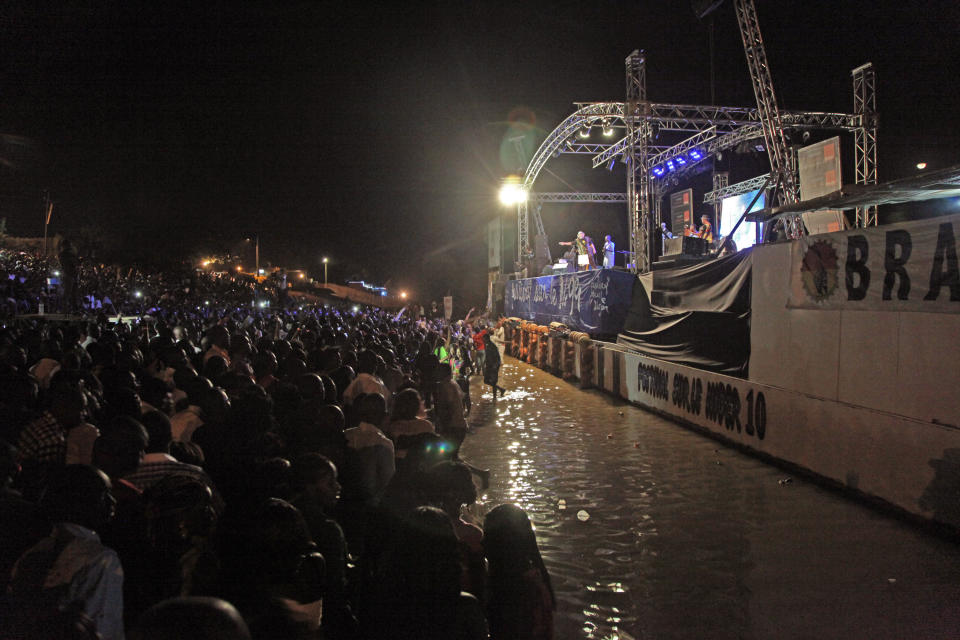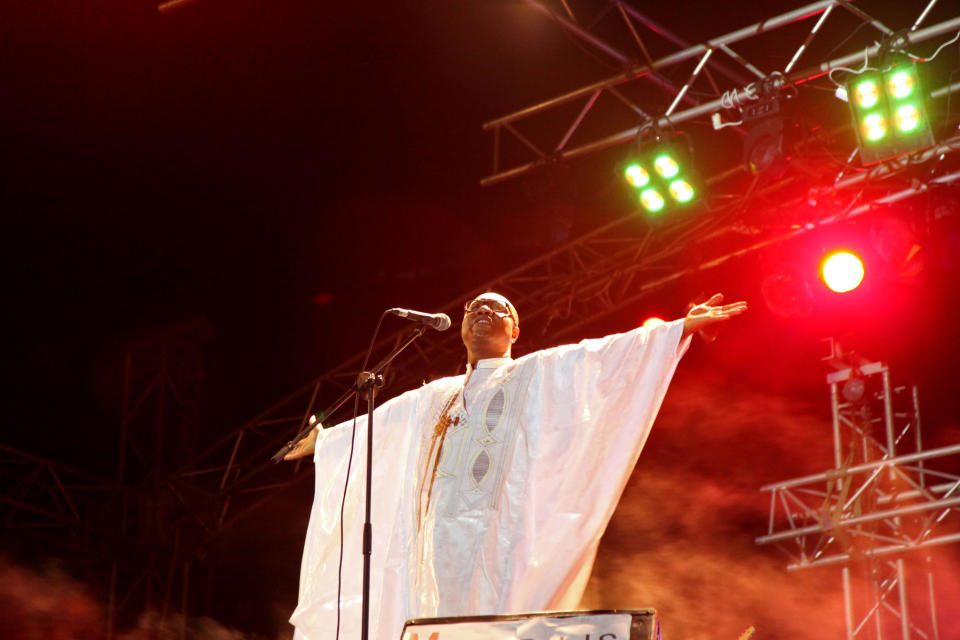Mali music festival returns after end of war
SEGOU, Mali (AP) — Long before Mali captured the global spotlight as an al-Qaida training ground where French soldiers had to intervene, the West African nation was celebrated for producing some of the biggest stars in world music.
Now Salif Keita and other top Malian performers are trying to revitalize the country's music tourism with the return of the Festival on the Niger. The concerts here in central Mali were canceled in 2012 because of fighting in the country's north, and again in 2013 as French and African forces battled to oust Islamic radicals from power there.
The insecurity also has sidelined Mali's famous Festival in the Desert, which drew visitors from around the world every year to hear some of the region's best acts perform, to ride camels and sleep beneath the stars. Although it's still too dangerous to resume that event, the Festival on the Niger is now back.
"This festival marks a start to the cultural renaissance of Mali. The country is starting to stabilize and it's very important to hold this festival and have visitors return," said Mamou Daffe, director of the festival in Segou, a town in central Mali on the banks of the Niger River.
The event, which ended Sunday, drew 19,000 people including Malians and Western tourists, said Mohamed Konate, a spokesman for the festival. The turnout remained high despite a text message that was sent to French nationals urging them to avoid public gatherings in the capital of Bamako because of the risk of a terror attack.
Among those taking part were Keita, one of Mali's most famous musicians, Vieux Farka Toure, Haira Arby, Guinean star Sekouba Bambino and Cheick Tidiane Seck.
The concert in Segou was a symbol of social unity after a jihadist occupation essentially divided the country in two, said Seck, a renowned Malian jazz pianist and composer.
"Security will not be ideal here for some years still but the barbarism is going to end because we are a united country," he said. "My goal for the north is to organize concerts and unite the artists of the north and south to show we are never going to give up. We are one and indivisible."
Mali had long been a stable democracy where a moderate form of Islam was practiced until the jihadist takeover in 2012. Their arrival ushered in an era where women were whipped for going outdoors without veils and convicted thieves were punished with public amputations.
The threat of kidnappings by al-Qaida terrorists also has sidelined the Festival in the Desert, which used to be held each year near the fabled town of Timbuktu. Organizers of the Segou festival invited participants from that event to take part this year in their concert as part of a "cultural caravan for peace."
Haira Arby, a famous Malian musician from Timbuktu, said it was difficult for her not being able to perform at the festival in her hometown.
"But seeing the festival on the Niger being held here in Segou gives me hope that the Festival in the Desert will return," she said.
Many Ansar, the director of the Festival in the Desert, said organizers had hoped to bring back the popular concert to help return the image of Timbuktu to one of a tourist town rather than a jihadist stronghold. But ongoing violence and the threat of attacks has prevented them from going forward with plans.
"But for us, the Festival on the Niger in Segou marks the largest resurgence of cultural activities in Mali," Ansar said. "But unfortunately there is still a gap between the north and south of Mali so we must take it one step at a time."
___
Online:
Festival on the Niger: http://www.festivalsegou.org
___
Follow Baba Ahmed on Twitter at https://twitter.com/Baba_A— .



